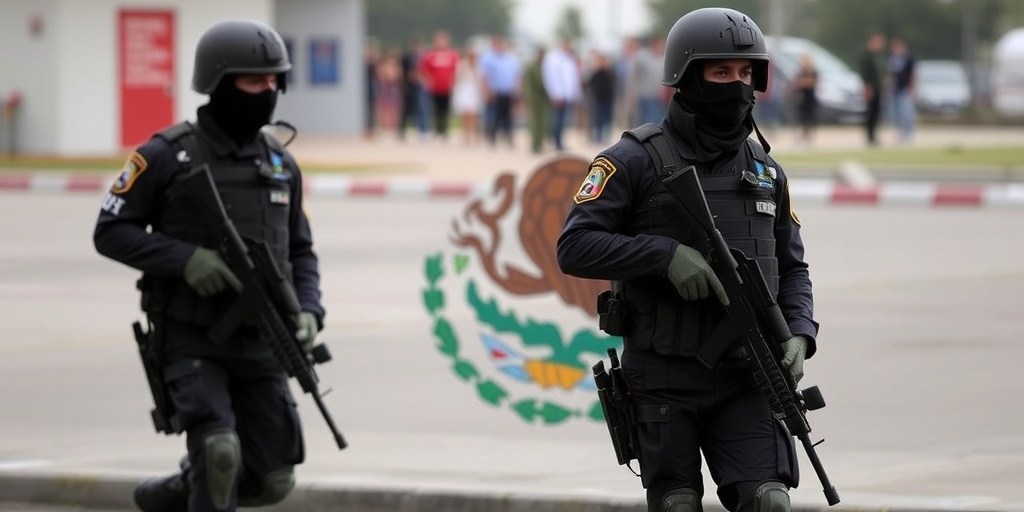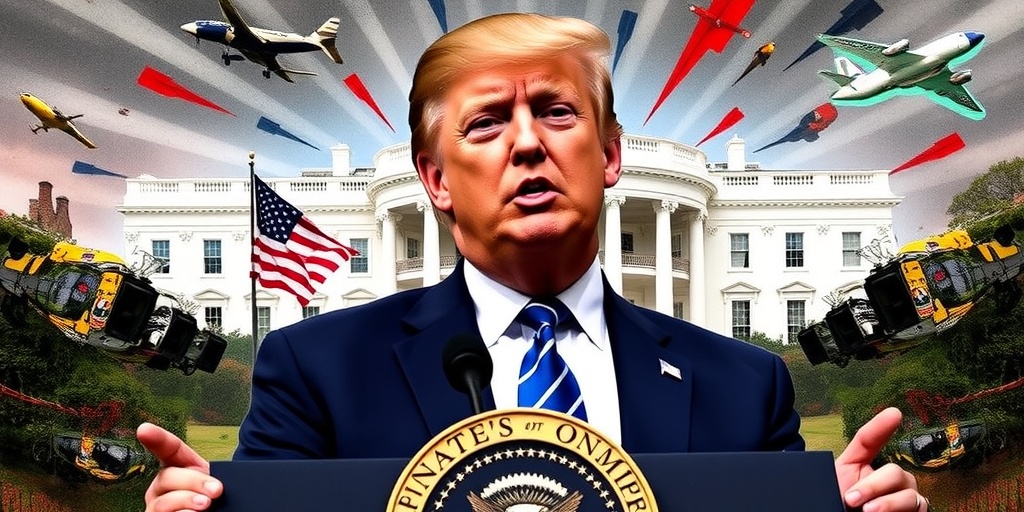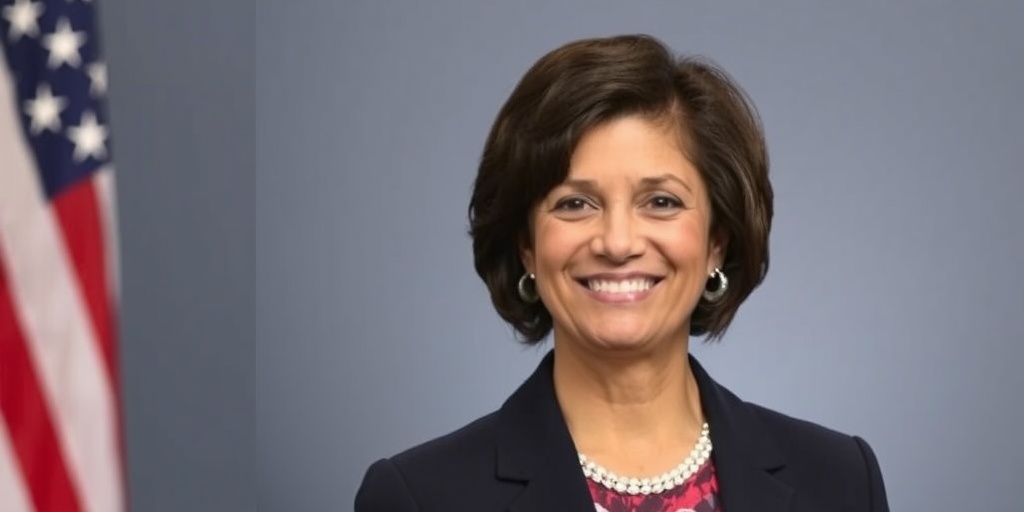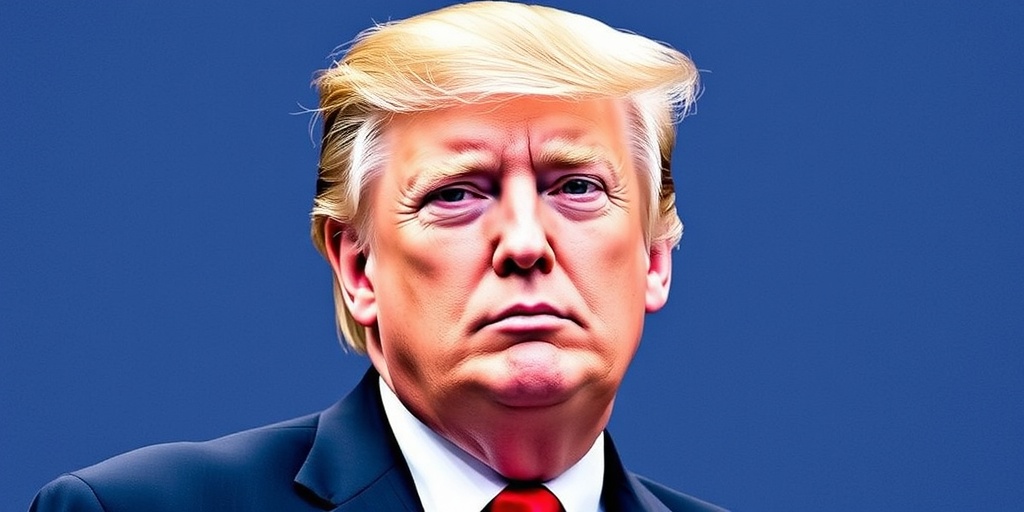Now Reading: Mexico Transfers Dozens of Cartel Operatives to U.S. Custody
-
01
Mexico Transfers Dozens of Cartel Operatives to U.S. Custody
Mexico Transfers Dozens of Cartel Operatives to U.S. Custody

Mexican Government Transfers Key Cartel Figures to U.S. Amid Heightened Pressure
In a significant development in the ongoing struggle against drug trafficking, the Mexican government announced on Thursday that it has begun the process of transferring nearly 30 prominent cartel operatives to the United States. This includes a notorious drug lord who has been wanted by U.S. authorities for over 40 years. This move is considered one of the most substantial efforts by Mexico in recent history to confront drug trafficking by sending high-profile criminals across the border to face charges in American federal courts.
The transfer of these cartel figures coincides with a high-level delegation from Mexico that is currently in Washington, D.C. The delegation is involved in discussions with senior U.S. officials to establish a security agreement, reflecting the current tensions between the two nations regarding drug trade and trafficking issues. Although U.S. officials declined to comment immediately on the transfer, the Mexican foreign ministry released a statement emphasizing that this action represents a commitment to collaboration, coordination, and mutual respect for each nation’s sovereignty.
Among the notorious figures being extradited is Rafael Caro Quintero, a founding member of the Sinaloa drug cartel, who was convicted in Mexico for orchestrating the 1985 kidnapping and murder of Drug Enforcement Administration (DEA) agent Enrique Camarena. Also included is Miguel Ángel Treviño Morales, known for his brutal leadership of the Zetas cartel, who was captured in Mexico in 2013. Both figures are expected to face serious charges in the U.S.
This significant move by the Mexican government comes amid intense diplomatic and economic pressure from the Trump administration. In recent months, President Trump has threatened to impose tariffs on Mexico and hinted at potential military action targeting drug lords and cartel infrastructure within Mexico. During a joint news conference with British Prime Minister Keir Starmer, Trump reiterated these concerns, asserting that the flow of narcotics into the United States has persisted unabated.
“The drugs continue to pour into our country, killing hundreds of thousands of people,” Trump stated emphatically. He highlighted the alarming number of overdose deaths, indicating that the nation is suffering significant losses, with substantial fatalities attributed to drug-related incidents.
Despite the political pressure, Mexico’s decision to extradite these cartel operatives has been received positively by American law enforcement officials, who view it as a clear indication of President Claudia Sheinbaum’s willingness to collaborate with the U.S. in the fight against drug trafficking. Ray Donovan, a former chief of operations for the DEA, remarked, “This is an unbelievably important moment and marks a true turning point.” He praised Sheinbaum’s administration for taking significant steps in cooperating with U.S. efforts to dismantle criminal organizations that have plagued both countries for generations.
The case of Rafael Caro Quintero, in particular, has been a long-standing obsession for DEA officials. After being released from Mexican custody due to a legal loophole in 2013, Quintero went into hiding, only to be recaptured in 2022 in rural Sinaloa state. He has been indicted on multiple drug trafficking charges in U.S. federal court in Brooklyn since 2020 and is expected to appear before a federal judge shortly after his extradition.
Similarly, Treviño, commonly referred to by his radio call sign Z-40, is notorious for his violent tactics and has played a crucial role in institutionalizing brutality within cartel operations. He faces numerous drug-related charges in federal courts across Texas, including those specific to Austin and Laredo.
This unprecedented handover of cartel figures not only signals a potential shift in Mexico’s approach to tackling organized crime but also ignites discussions about the efficacy and future of security cooperation between the two neighboring countries. As the situation continues to unfold, it remains to be seen how these developments will impact the broader landscape of drug trafficking and bilateral relations.
Stay Informed With the Latest & Most Important News
Previous Post
Next Post
-
 01New technology breakthrough has everyone talking right now
01New technology breakthrough has everyone talking right now -
 02Unbelievable life hack everyone needs to try today
02Unbelievable life hack everyone needs to try today -
 03Fascinating discovery found buried deep beneath the ocean
03Fascinating discovery found buried deep beneath the ocean -
 04Man invents genius device that solves everyday problems
04Man invents genius device that solves everyday problems -
 05Shocking discovery that changes what we know forever
05Shocking discovery that changes what we know forever -
 06Internet goes wild over celebrity’s unexpected fashion choice
06Internet goes wild over celebrity’s unexpected fashion choice -
 07Rare animal sighting stuns scientists and wildlife lovers
07Rare animal sighting stuns scientists and wildlife lovers




















